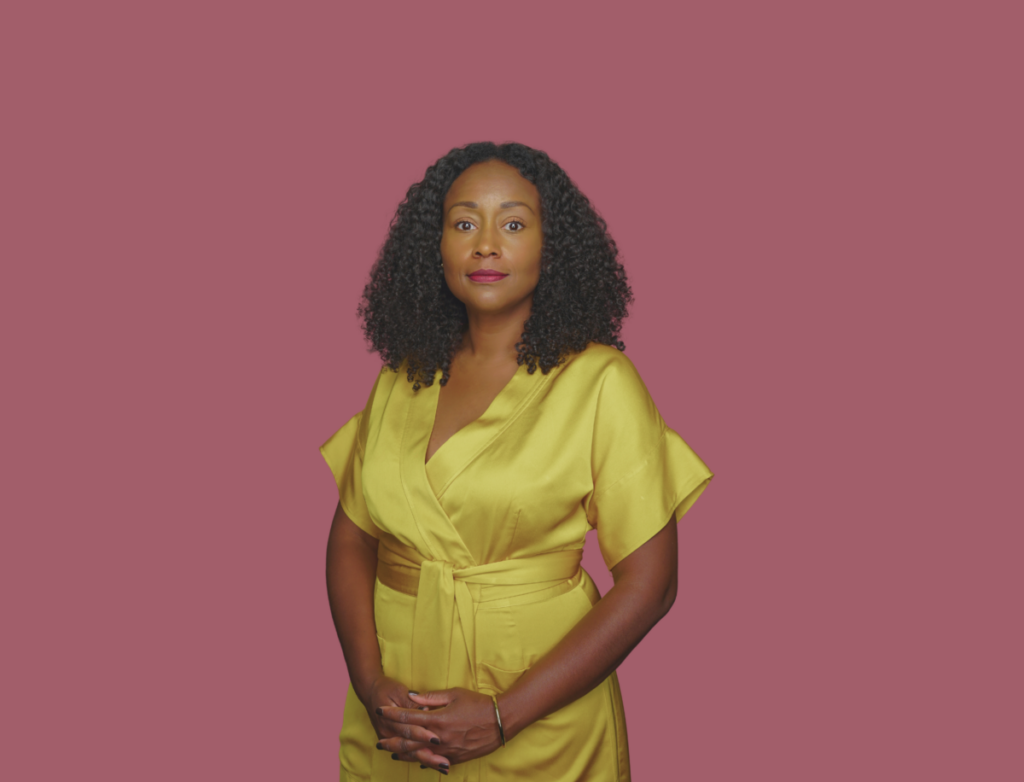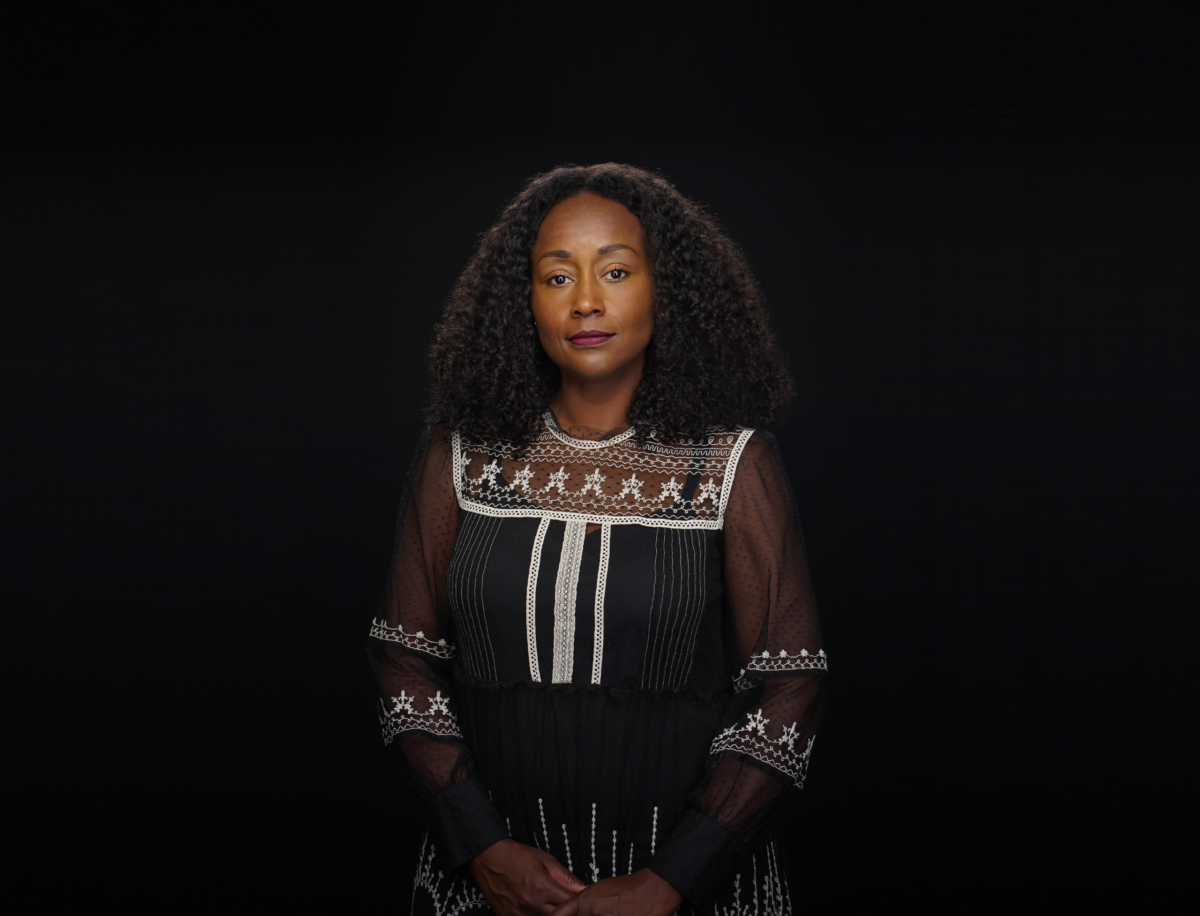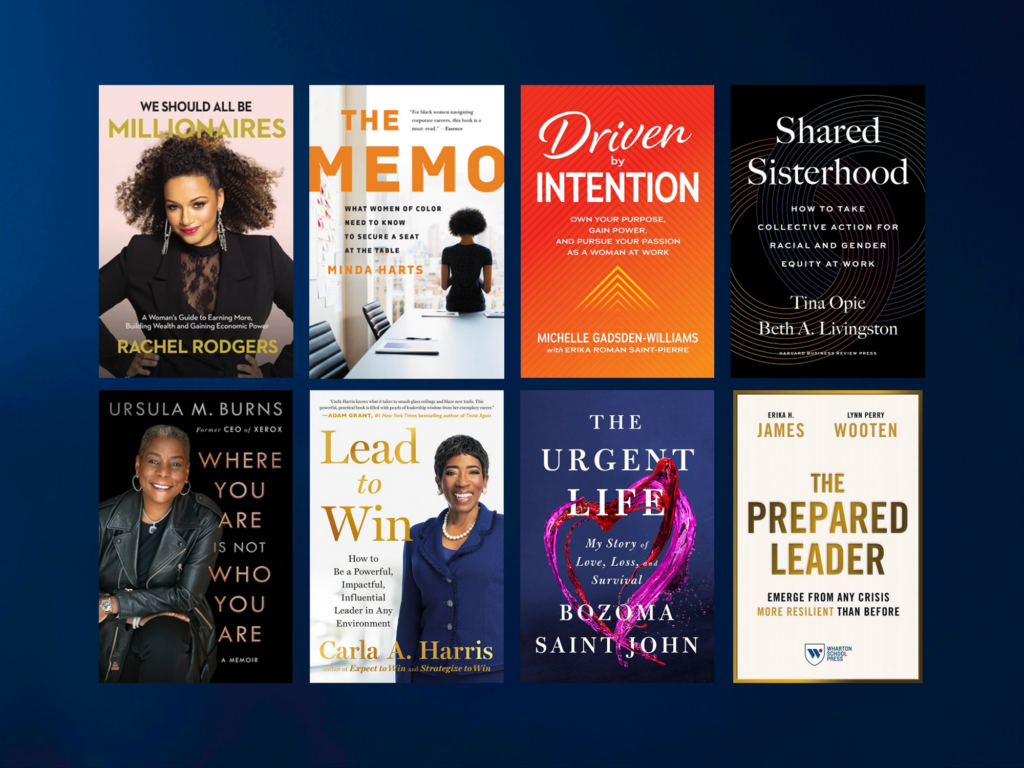Marketing, creative entrepreneurship & the MBA: a conversation with Delanie West

For marketing professional and entrepreneur Delanie West, achieving her MBA was a dream decades in the making, but as her story goes: timing is everything. An alumna of Hampton University and current MBA candidate at Syracuse University, she serves as a student ambassador for the graduate program.
As the Founder and Creative Director of her own marketing, product and brand development firm, Be Super Creative, West launched her company in 2010 after hours while maintaining her 9-5 leading the product development and design strategy for the world’s oldest Stein, Germany based luxury writing firm, Faber-Castell Gmbh. She served on the company’s executive committee, charged with shaping culture and policy for the U.S. division before her position was deemed a redundancy and she was let go. Rather than fear the unknown, West leveraged her professional experience and parlayed her skills into building brand development for a range of businesses at her own firm. From mature, multinational luxury brands, to startups, and emerging solopreneurs, she approaches each client with creativity and curiosity. While entrepreneurship deserves to be recognized and celebrated, she says there’s another dark motivation behind her professional journey that not nearly enough people discuss.
“There was this McKinsey study that celebrated the amount of women who founded their own businesses, specifically women of color. The thing that they don’t talk about is why,” West explains. “[It’s] because of the bias in the workplace, because of the racism. All of those things that make it impossible for us to exist in places of work. Those are the reasons why such great numbers of us found our own businesses… I’m in this position because I needed to be, I needed to protect myself and I think there’s a lot of women like me.”
When she’s not training for a triathlon, or building out a creative strategy for a client, she’s volunteering at one of the many organizations she’s involved in – mostly center around empowering underprivileged girls. As Delanie caught up with MBAchic, she had just returned from Capitol Hill where she was advocating on the behalf of the Graphic Artists Guild and was days away from traveling to the East Coast to receive an award for her work with the International Girls Academy. The non-profit aims to help girls use their strengths to break down barriers and solve problems regardless of their socio-economic status.
Her experience highlights the importance of timing, belief in oneself, and strategic planning for personal success in a marketplace that often neglects uplifting women of color.

MBAchic: You’re completing your MBA this year with a dual emphasis in Marketing and Entrepreneurship. How did you decide on the online MBA program at Syracuse University’s Martin J. Whitman School of Management?
DW: I had been wanting to do my MBA for a few decades. However, when you have a boss and you have a staff that you’re responsible for… in my line of work, I was always traveling domestically, internationally. There was no way that I could ever be going to a campus to earn this degree. And when I wanted to do it, technology wasn’t what it is today. So it was always something that I wanted to do but my job and responsibilities prevented me from doing so. In the last five years, I have gone to managing my agency full-time, after, what’s the new word they call it? It’s such an eloquent word. Ah, yes. My position was determined to be a redundancy.
They decided to move product development back to Germany. So I had to decide what I was going to do, and I said, full-time, focus on my agency Be Super Creative, while I figured out what I wanted to do. And then comes COVID… I said, God, I wasted a lot of time. I had been researching Syracuse for its breadth of educational opportunities. They kind of represented everything that I love, in terms of full person professionally and personally. They had a great reputation that the online school was just top rated.
MBAchic: What kind of opportunities did that MBA experience afford you within the marketing industry?
DW: I would say right away credibility. Because I know I’ve got good credibility, I know what my background is, but unfortunately, branding is everything. Right? Also I experience a lot of times where clients will come to me for creative solutions and I say: wait a minute… do you have a marketing plan? Have you identified your consumer? What do you know about your business? I can’t tell you how many people, businesses, founders, didn’t have any of this. I said, you know, you can’t put lipstick on a pig, right? There’s no way I can help you be successful if you don’t have these things. There’s no way I’m going to take your money to do creative when you don’t have good strategy. I just found that more often than not, creative shook hands with marketing and business strategy. It just made sense for me to go back and get that book knowledge, that experience in terms of the things that I learned over the years. I needed to be able to better structure and articulate them for clients.
MBAchic: Should people who are interested in more creative industries like marketing and brand development be more open-minded about getting their MBAs?
DW: Enrolling in a program helps to further fill out your toolbox to give you the credibility to give you the pieces that a lot of other creators don’t have… Creativity has been recognized as a key skill. You have to have that element and the way you think about solving problems. It’s not just creativity as it relates to the art of making something, the art of writing or singing. It is strategy. And when you think about anyone who is a creative, we have this ability to see. I always say I hate math, but I speak in terms of equations. I always say, we have this ability to see A to Z, when we do something, we already know what Z looks like in our mind.
That’s strategy, that’s planning, right? That’s problem solving. And we don’t give ourselves enough credit. We don’t charge for it. When we’re thinking about a business problem, a creative solution, we do it as we’re sleeping. And we only charge for the hours that are billable, which is work. We’re working all the time. So I think we as creative people have to do a better job at marketing the value of what it is that we actually do. I think once you venture down the pathway to an MBA, you understand how to speak in those terms and you can better explain and articulate, ‘this is why you want to work with me.’
MBAchic: What’s the top piece of advice that comes to mind when you think about someone making that decision to attend business school? How can they get the most out of the experience?
DW: I know a lot of people go to undergrad and they go right to [their] MBA. I’m going to tell you, doing this after 20 plus years of experience has helped me master the concepts. It’s taught me pieces that I didn’t understand, but I think I was able to really use this information in ways [literally] the next day I’m implementing what I learned, as I work with clients, because I understand it. Had I done this right after undergrad, I would’ve kind of been in the dark, I wouldn’t have been able to use those skills and that knowledge straight away. Because I already had the experience, I could connect the dots instantly [with] full clarity. Don’t feel pressured to do it right away and maybe have a 2, 3, 4, 5 year plan for when you’re going to do it.
MBAchic: What emerging trends marketing should we all be following in 2023?
DW: Technology will change everything… how quickly we can work, it can complement the way we all do business in terms of copywriting, design, strategy. You know, anything that we have done as a society professionally has changed in the last three, two to three years. Data analysis is driving any technology gains and advances, learning about your consumer, learning about an industry. I always say that’s the magic, that’s the secret sauce…I tell people who are afraid of artificial intelligence that those systems only work on data that’s here and things that have been created, but your brain can create something new, and a way that you prime your thoughts and get ready to create something new is you’ve got to talk to people. So as long as you are a creator, and you can make more of something, you always can create value that can’t be duplicated.
MBAchic: Outside of work, you are an avid athlete. Would you say this the key to avoiding creative burnout?
DW: I do different things, I love to ride my bike on the trail, being in nature and using my body does something for me. Growing up, my first instrument was piano, then the violin, but using my hands to create what was in my mind, there is just a physical connection to creation, like exercise and thinking and making. It’s all interconnected. Studies talk about the benefits of exercise and increasing productivity, and especially creativity, so it’s also the contrast. You’re thinking about solving a really important business problem for a client, right? You have to deliver, well, I need to go and burn off some steam and do something that I like, cycling, running, swimming.
When our mind is at rest, it’s when our brain solves problems. We solve problems when we’re not thinking about them. So that time that we get doing the things that we love, we’re still working on solving the problem, but we’re also feeding our curiosity for going out into nature. I love making art and I love people watching. I love the arts. So when I’m doing those things, I’m feeding my engine. So it’s the contrast between work for money and then doing work just to serve your soul.
MBAchic: Beyond business and classwork, you make time to give back and support a variety of women-led businesses, solopreneurs and nonprofits. Any helpful tips for other busy professionals who want to get more involved in organizations they care about?
DW: Well, first of all I am a Girl Scout and they taught me right. I really do give a lot of credit because that experience taught me about what it means to be a sister to another girl. It taught me about being an entrepreneur as a girl selling cookies. I mean, we don’t really think about it. We think it’s cute, but how terrifying is it to go knock on somebody’s door and say, would you buy some cookies? I mean, you can’t do it today, but my God, like, what were we learning?
Over time, I felt that I would like to have seen more women extend themselves to me and I was saddened that I didn’t have more mentors in business. I was often the first and the only in the spaces of work, and I was young, so there was no one to show me the way. So I did feel that there were a lot of spaces where I was not welcome. Had I had greater mentorship, I probably could have achieved far greater with help. So, I make sure that I do the sisterly thing.
What are those things that are most important? What are those things that are going to help yield the greatest benefits? I make time for those. I also try to make one thing fill two different needs. So I love to run, I love to work out. Well, I’m going to also volunteer for Black Girls Run. I’m doing a few things. I’m helping my community. I’m helping other women. I’m empowering girls, and I’m doing the fitness piece. So when you find a cause that aligns with a few of your goals, you can do more. You can fulfill yourself, you can help.
We will go farther with help than we can go by ourselves. And quite frankly, women have so much to tackle in places of work, in places of funding for our ideas. We’re not getting our fair share. Why is that? We don’t have enough advocates for us. And so we have to help each other.

Join MBAchic to connect with Delanie West and more creative MBAs and entrepreneurs using the MBA to help unlock the next exciting chapter of their careers.







